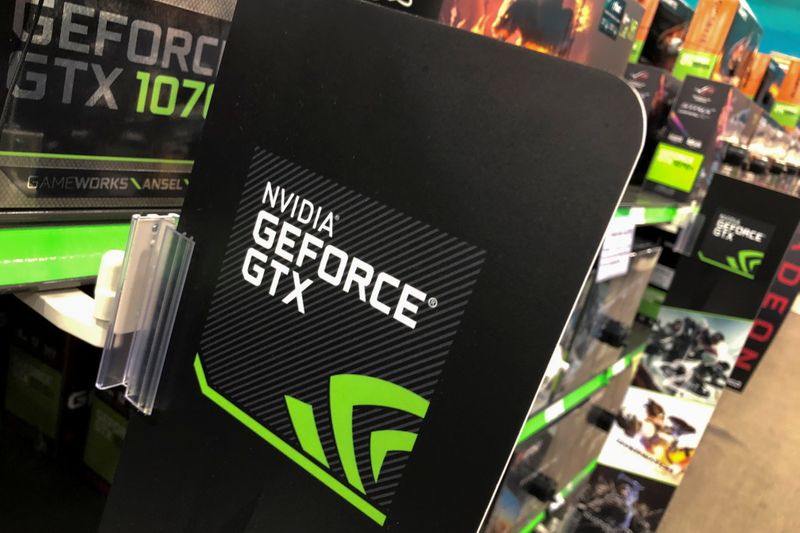NVIDIA Corp (NASDAQ:NVDA), a $3.38 trillion market cap semiconductor giant with a perfect Piotroski Score of 9 according to InvestingPro, disclosed on Monday that a new U.S. government rule, "Export Control Framework for Artificial Intelligence Diffusion" (IFR), will impose a global licensing requirement on products including related software and technology classified under specific Export Control Classification Numbers (ECCNs).
Based on InvestingPro's Fair Value analysis, NVIDIA is currently trading above its Fair Value. This announcement was made in an 8-K filing with the Securities and Exchange Commission.
The IFR, published on January 15, 2025, will affect NVIDIA's products such as the A100, A800, H100, H200, H800, B100, B200, GB200, L4, L40S, and RTX 6000 Ada, among others. The rule targets integrated circuits (ICs) that achieve certain total processing performance and/or performance density. Compliance with the licensing, reporting, and other requirements will be mandatory after a 120-day delay, starting May 15, 2025, unless the rule is modified or withdrawn by the incoming administration.
In response to the new rule, NVIDIA has expressed its commitment to U.S. leadership in innovation and its intent to provide feedback during the public comment period, which ends on May 15, 2025. The company has emphasized its support for establishing new data centers in the U.S. and promoting infrastructure development for AI-powered systems.
Additionally, on January 16, 2025, the Department of Commerce's Bureau of Industry and Security published a rule titled "Implementation of Additional Due Diligence Measures for Advanced Computing Integrated Circuits." This rule aims to prevent the misuse of ICs by requiring foundries and Outsourced Semiconductor Assembly and Test (OSAT) companies to verify technical parameters of ICs. As an approved IC designer with impressive gross profit margins of 75.86% and revenue growth of 152.44% over the last twelve months according to InvestingPro, NVIDIA does not anticipate this rule to impact its operations or product sales to China.
NVIDIA's filing includes forward-looking statements, cautioning that actual results could materially differ due to various risks and uncertainties. The company's future performance is subject to factors such as global economic conditions, reliance on third-party manufacturers, technological developments, market acceptance, and potential defects in products or technologies.
This news comes as the tech industry faces increasing scrutiny and regulatory challenges worldwide, particularly in the areas of artificial intelligence and advanced computing. According to InvestingPro, NVIDIA maintains a "GREAT" overall financial health score of 3.6, suggesting strong resilience to regulatory challenges.
The information is based on a press release statement. For deeper insights into NVIDIA's financial strength and growth prospects, investors can access the comprehensive Pro Research Report, available exclusively on InvestingPro, which covers over 1,400 top US stocks.
In other recent news, Nvidia, the U.S. AI chip giant, continues to demand advanced packaging from Taiwan Semiconductor Manufacturing Co (TSMC), transitioning to a newer type of technology called CoWoS-L for its sophisticated AI chip, Blackwell. This shift is not about reducing capacity but rather increasing capacity into CoWoS-L, as confirmed by TF International Securities analyst Ming-Chi Kuo.
DA Davidson reaffirmed a Neutral rating on Nvidia, maintaining a price target of $135, indicating a cautious outlook on the company's ability to meet consensus expectations for the calendar year 2026 and beyond. Nvidia's Quantum (NASDAQ:QMCO) Day announcement at the GPU Technology Conference 2025 sparked interest in the quantum computing sector, causing a surge in quantum computing stocks, including Rigetti Computing.
Fairlead Strategies provided a technical analysis update indicating bearish developments for Nvidia stock, anticipating a bearish short-term outlook if the breakdown of its support from the daily cloud near $134 is confirmed. KeyBanc Capital Markets revised its outlook on Nvidia, pointing to expected declines in demand for Nvidia's Hopper GPUs and lower than expected contributions from Blackwell GPUs. Despite these near-term challenges, KeyBanc maintains an Overweight rating on Nvidia.
This article was generated with the support of AI and reviewed by an editor. For more information see our T&C.
